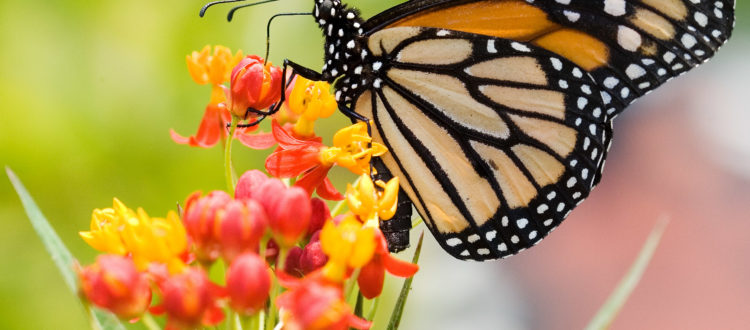Time to Increase Funding for Monarch Butterflies
On March 30, 2020, Urban Bird Foundation joined Center for Biological Diversity and other organizations to request the US House of Representatives Committee on Appropriations and Subcommittee on Agriculture, Rural Development, Food and Drug Administration, and Related Agencies increase funding for protection and conservation of monarch butterflies.
The submitted letter highlights the staggering wildlife extinction crisis with populations around the world are crashing at alarming rates and with distressing frequency. In particular, the letter drafted by the Center stated:
Monarch butterfly populations have fallen by more than 80 percent over the past 20 years, and scientists at the U.S. Geological Survey estimate that there is nearly a 60 percent chance the monarch’s spectacular, multigenerational migration in the eastern half of the country could completely collapse within the next 20 years. 1 More alarmingly, the western population that winters in California has collapsed by nearly 99.4 percent, and could disappear in just a few short years. Thus, we request that you significantly increase funding for the conservation of monarch butterflies to $100 million per year starting in fiscal year 2021.
This level of funding would cover the cost of restoring one million acres of milkweed and pollinator habitat per year so that the butterfly is resilient to threats from habitat loss, pesticides, severe weather, and climate change.
Once a familiar sight, today the monarch’s future is very much in doubt. The most recent annual count of monarch butterflies overwintering in Mexico—about 99 percent of all North American monarchs—showed a decrease of 53 percent from last year’s count. The western population of monarch butterfly is doing even worse. That population has crashed by 99 percent, reaching a historic low of fewer than 30,000 butterflies for the second year in a row, down from 1.2 million two decades ago. Both populations are below the threshold at which government scientists predict the migrations could collapse.
The monarch butterfly has been decreasing towards extinction due to landscape-scale threats from pesticides, development, and global climate change. Although illegal logging and severe weather have contributed to the decline, the large-scale use of herbicides that destroy milkweed—the monarch caterpillar’s sole host plant and only food source during its caterpillar stage—is a driver of the butterfly’s decline. Milkweed has decreased by 21 percent in the U.S. between 1995 and 2013, and nearly 165 million total acres of milkweed have been lost to pesticide-intensive agriculture and development. Reversing that trend by actively restoring milkweed and other pollinator habitat is critical to ensure the long-term survival of the monarch butterfly.
While the Natural Resources Conservation Service (NRCS) has taken some initial steps toward slowing the monarch’s decline—including the implementation of the Monarch Butterfly Habitat Development Project—monarchs desperately need more funding and an even greater commitment from Congress to ensure their long-term survival. The 2015 National Strategy to Promote the Health of Honey Bees and Other Pollinators set a short-term goal of 225 million butterflies at the overwintering locations in Mexico occupying an area of 15 acres (6 hectares). This is the bare minimum needed to avoid extinction and is not a long-term goal for stability. Unfortunately, the latest annual count for 2020 found overwintering monarchs occupying just 7 acres (2.83 hectares).
The monarch butterfly population once numbered at least one billion monarch butterflies and 10 hectares of overwintering forest cover. Without substantial investments in the monarch’s conservation, one bad storm or strange climate event could result in migratory collapse. Dedicating $100 million a year to monarch conservation gives these beloved butterflies a fighting chance at survival. We sincerely hope Congress will step up to the challenge and help save one of the world’s most iconic butterflies from further decline.


